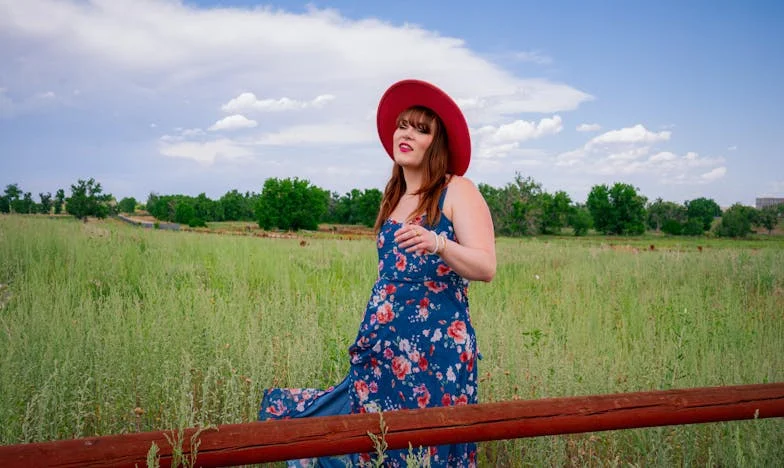Echoes in the Park: How a Little Girl Reminded Me of My Own Story
“Why do grown-ups always leave?”
Her small voice cracked through the late-afternoon hush, barely above the cooing of the pigeons that pecked at the crumbs in her hand. I’d noticed her before—always alone on the faded green bench by the playground, always with a half-loaf of bread and a restless, searching gaze. Today, her eyes found mine, and I felt a jolt I wouldn’t admit even to myself.
My name is Mary, and I’m a psychologist. I write a blog about mental health and childhood resilience, but nothing I’ve researched or written prepared me for the tidal wave of recognition on that third meeting in the park. The girl’s name was Emily. She was eight years old, wore her brown hair in tangled pigtails, and had the sort of honesty that slices through pretense.
“I don’t know,” I whispered, surprised at how quickly my voice trembled. “Sometimes adults don’t know how to stay.”
Emily shrugged, her small shoulders rising and falling as if she carried a backpack filled with bricks. “My mom said she’d come back for me. But she married some guy in Canada and now she only calls on Sundays.”
I sat beside her, the bench creaking under our weight—hers so slight, mine carrying the years I’d spent trying to outrun my own story. “Does your dad live with you?” I asked.
She shook her head. “Dad has a new girlfriend. She doesn’t like kids much. I stay with my grandma.”
Her words hit me with an intensity that made my lungs tight. I remembered the old, yellowed wallpaper in my grandmother’s house, the silence after my own parents’ divorce, and the echo of my mother’s promises sent in postcards from a thousand miles away. I remembered being that girl on the bench—waiting, always waiting.
For weeks after that first conversation, I found myself returning to the park. I told myself it was just to check on Emily, maybe offer a snack or a smile. But each visit chipped away at the walls I’d built around my childhood. We talked about school—she hated math but loved reading. She showed me bruises from falling off the jungle gym, and I told her about the time I broke my arm at her age. Slowly, we shared more.
One evening, Emily looked at me with a seriousness that didn’t belong on any child’s face. “Why do you come here? You don’t have kids.”
I hesitated. “I guess I come for the same reason you do. It’s quiet here. Safe, a little.”
She nodded, considering. “Do you miss your mom?”
I looked at her, really looked, and for the first time in years, I let myself feel the ache. “Yes. Even now, sometimes. But I learned to make my own kind of family. Friends, people who care.”
She was quiet for a long moment, then scooted closer. “Do you think I’ll forget her?”
I shook my head. “No, but you’ll find ways to remember her that don’t hurt so much.”
That night, I wrote a blog post about Emily without naming her. I wrote about cycles—how children of broken homes sometimes become adults who fear connection, how we carry scars invisible to the world. I wrote about the anger that simmers under abandonment, the guilt that children feel when their parents leave. I wrote about my own mother, who sent birthday cards with Canadian stamps and apologies, and the relief and grief that came with every envelope.
The post went viral. Comments flooded in—stories from readers who had been left behind, who had left themselves, who had patched together new families from remnants. Some were angry, some hopeful. One woman wrote, “I never realized how much my daughter’s silence meant. Thank you for giving it words.”
The next Sunday, Emily was waiting for me with a crumpled drawing. It was us, sitting on the bench, a sun overhead and pigeons at our feet. She grinned. “I made you a family picture.”
My throat tightened. “Thank you, Emily. This means a lot.”
She asked if I’d be there next week. The answer was yes, of course, but something in me shifted. I wasn’t just visiting for her anymore—I was returning for myself, for that little girl I used to be. I realized healing isn’t a place you arrive, but a road you walk, sometimes circling back, sometimes reaching out a hand to someone who needs it.
One evening, Emily’s grandmother approached me as I packed up my things. Her voice was wary but grateful. “Thank you for sitting with her. She doesn’t talk much at home.”
I smiled. “She doesn’t have to say much. Sometimes, being there is enough.”
As summer slipped into fall, Emily’s mother called less and less. One Sunday, Emily didn’t bring bread. She just sat quietly, head on my shoulder, and I let her be sad without trying to fix it. When she finally spoke, her words were soft as dusk.
“Do you think she’ll come back?”
I squeezed her hand. “I don’t know, Emily. But I do know you’re not alone.”
Now, weeks later, I look back on these meetings and wonder: How many of us are sitting on benches, waiting for someone to return, or for our own hearts to forgive? How do we learn to stay, for ourselves and for others, when the world teaches us to run?
Would you have sat down with her? Would you have told your own story, or kept it hidden like I did for so long?
